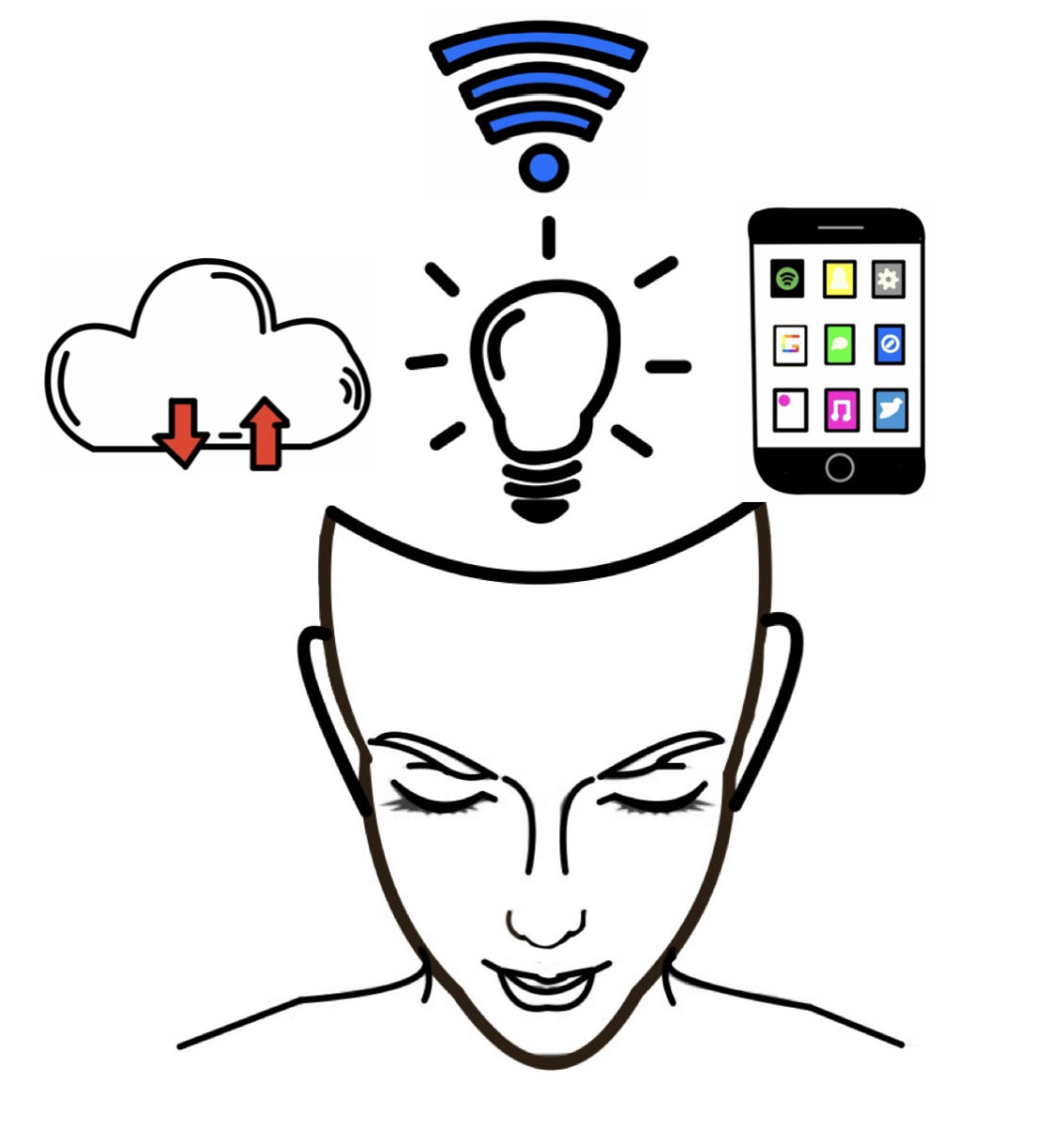Sunday, Oct. 8. It was a normal weekend for me, and I woke up to my 9:00 a.m. alarm. I went downstairs, heated up some breakfast, and called my parents who aren’t in the house. After talking with them for a few minutes, I turned on my TV to watch some Sunday morning football before opening up my computer to work on my college essays with some music playing in my AirPods. My dad then called me and said he was going to pick me up to play some tennis. I checked the time, it was 12:55 p.m.
I didn’t recount my morning to tell everyone how exciting my life is, although I did want to point something out. In the three hours that I was awake, how many times did I use some form of technology? I counted eight times before I got into my dad’s car to play tennis. It wasn’t even 1:00 p.m. yet. Using separate forms of technology almost 10 times in three hours seems a bit unhealthy, but is it really that uncommon?
It’s no surprise that technology has become so advanced that we can almost forget how much we rely on it to live. Sports, work, education, communication, travel, and music are dependent on the effects of technology to be successful. This includes people watching sports on their TVs, doing their work on their computers, communicating and listening to music using their phones, and traveling using cars.
Some might say that this is a good thing; humans have made advancements in these aspects of life because of the evolution of technology. That being said, there are clear downsides to this overuse of technology that a lot of people like to ignore.
“I feel like a sense of entitlement and laziness is created from using phones, computers, expensive cars, and things like that,” senior Clayton Souza said.
Technology makes life easier for humans, which opens new possibilities to some, but can also be abused by people who don’t necessarily need it. This can affect their personality and change the way they live their lives, bringing up another question: How lazy is society, and what did technology specifically do to affect this?
“It’s pretty clear to me how much we are affected by technology in how we entertain ourselves. If I want to relax, my first instinct isn’t to read or even to play sports sometimes. I just like to sit on my phone and talk to my friends or watch Netflix. Even if I want to see my friend who lives nearby, I prefer driving instead of walking because it’s more convenient. I’m not proud of it, but that’s just the way it is, and I don’t think I’m alone,” junior Sean Brown said.
Laziness is unfortunately not the only way technology negatively impacts humanity. Recent studies have connected the mental health of teenagers and youth with the rise of technology, including phones and apps like Instagram, Snapchat, TikTok, and more.
According to the Pew Research Center and a survey done by CTRL Care, 99 percent of teenagers have access to the internet, and 90 percent of these teenagers use social media. This can lead to hours spent a day caring about what they look like, how they are perceived, and how others live their lives as well.
“Sixteen percent of high school students said they were bullied through text messaging or social media in the past year, and 1 in 3 girls said they felt bad about their bodies at least once a week when using TikTok, Instagram and Snapchat,” Adventist Health wrote. As a result, it is no surprise that many teenager’s happiness can largely revolve around these apps, affecting their growth as people and their futures.
“Social media use has also been associated with a higher risk of developing depression and anxiety, as well as decreased self-esteem and body image issues. Spending more time on social media interactions and less time on in-person connections can lead to feelings of isolation, which can impact mental well-being,” Sara Ratliff of Citizen Advocates wrote.
Technology is on the rise regardless if one supports it or not. Knowing this, how can we combat the negative effects it can have on our youth? Potential solutions have to start with parents of young children and how their usage of technology is monitored.
“According to the American Academy of Child & Adolescent Psychiatry (AACAP), teenagers spend up to nine hours per day watching or using screens, and children ages eight to 12, spend four to six hours a day using screens. Mayo Clinic recommends limiting screen time to one hour per day for children between the ages of two and five,” the National University blog wrote.
What about for teenagers or older kids? What can parents do to help them spend less time on social media and other apps?
“One way is to limit technology use while children are focused on other tasks. Prohibit smartphone use while working on homework, encourage conversation and interaction during dinner time, turn the TV off while children are reading. Encourage your kids to take time to unplug and disconnect,” the National University blog wrote.
Despite evidence of the negative effects that technology causes, the benefits are still extremely clear. Some can make the argument that these apps allow teenagers to be more connected with each other, and allow them to communicate in ways that have never been thought of before. However, is it worth sacrificing our happiness and health for? How far are we willing to sacrifice to stay connected?


